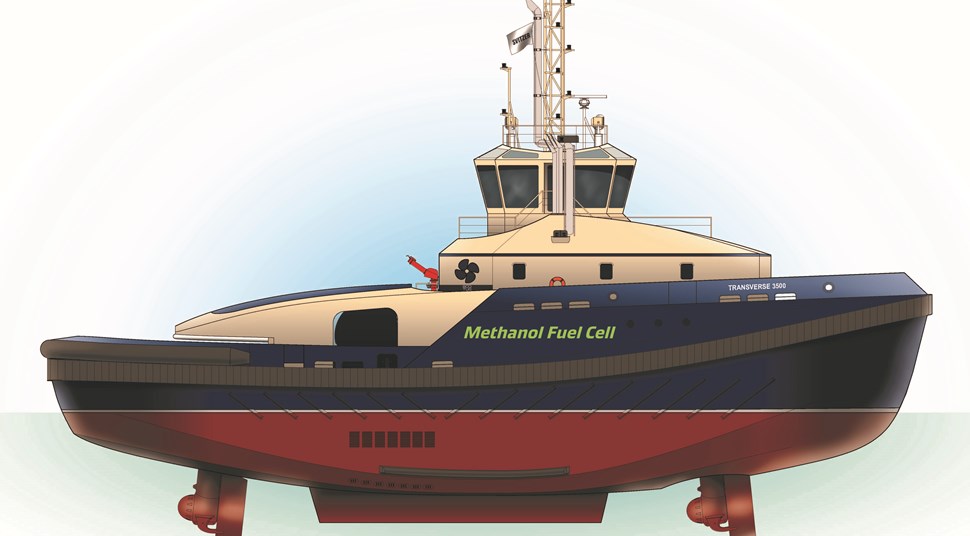Тhe tug operator Svitzer launched the second phase of the company’s project to design for the world's first methanol hybrid fuel cell tug. The vessel is set to be deployed in the second half of 2025 and will operate in the Port of Gothenburg.

Svitzer has conducted technical studies to establish the feasibility of this type of vessel accommodating the real-world operational requirements of a tug. Work will now begin between Svitzer and leading naval architect company, Robert Allan Ltd., to design the tug.
Svitzer's calculations indicate that the methanol hybrid fuel cell tug running on green methanol would prevent approximately 1,300 tonnes of CO2 annually from being emitted into the atmosphere, compared to fossil-fuel-based vessels of the same dimensions within Svitzer's global fleet.
The tug will use an electrical propulsion system with methanol fuel cells and batteries delivering a self-sustained tug with longer endurance and fewer operational constraints than a purely battery-powered vessel. Secondary methanol-fueled generators will provide backup power if required without the need for a secondary fuel.
Deployment in Gothenburg
The decision to deploy the tug in the Port of Gothenburg has clear logic. The Port of Gothenburg has a long history of advocating and facilitating alternative fuels in the transition to greener shipping. A mix of alternative fuels is required, where methanol is considered a key component.
Mathias Jonasson, Managing Director for Scandinavia & Germany at Svitzer, said: "Svitzer has been delivering safe and efficient towage services to customers in the Port of Gothenburg for decades. In addition to its ambitious emission reduction targets, the Port of Gothenburg has already gathered valuable experiences regarding the safe and convenient bunkering of methanol. The port's experience and position as an emerging methanol bunker hub, combined with our long-standing collaboration and relationship, makes the Port of Gothenburg an obvious location for us to deploy the world's first methanol hybrid fuel cell tug."
Operational regulations for methanol bunkering have been in place at the port since 2022, and several unique and technologically advanced operations have already been carried out. For example, the bunkering of Stena Germanica earlier this year, which became the world's first methanol bunkering from a vessel to a non-tanker vessel. The port aims to become the primary hub for both bunkering and storage of methanol in northern Europe.
Göran Eriksson, Port of Gothenburg CEO, said: "The Port of Gothenburg has set ambitious targets to reduce shipping emissions within the port area by 70% by 2030. To deliver on that ambition, the transition of shipping lines from fossil fuels to more sustainable fuels such as green methanol is critically important. Svitzer's decision to design and construct the world's first methanol hybrid fuel cell tug is a major milestone which sets the example for the long-term decarbonization of global towage services. We're excited to welcome this pioneering new vessel to the Port of Gothenburg when it enters into operation in 2025."
The next phase in the development of the new tug will include work to complete the vessel design, scope considerations for vessel construction, and onboard equipment selection necessary to build the vessel.